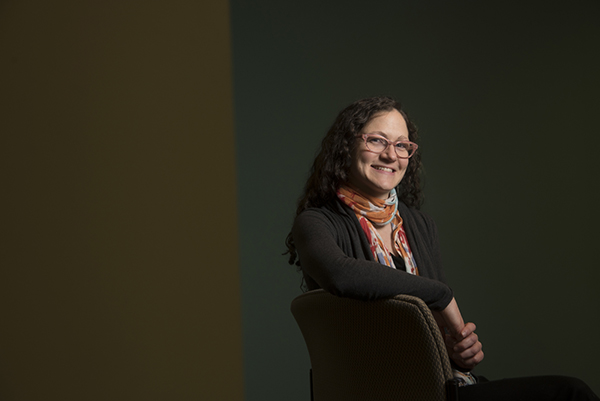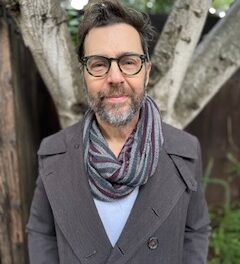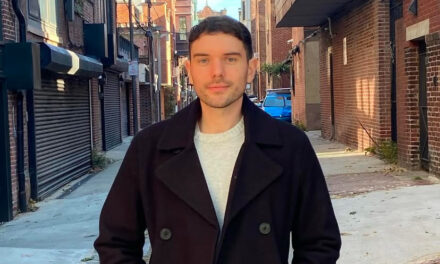
Assistant Managing Editor Bess Winter: Whether written in the spirit of a ghost story, like A Christmas Carol, or as a reminiscence on the loss of childhood innocence, like Fanny and Alexander, it’s often the nature of a classic holiday tale to look backwards with longing or curiosity. Amy A. Whitcomb’s “Time travel by train” miniaturizes the reader as we ride along with the inhabitants of a brittle and seemingly ancient toy railroad through scraps of the narrator’s own family history. I love the work the toy does in navigating the narrator’s own questions about her father’s past, and the way the unpacking and repacking of the train each year raises those questions anew.
Listen to Amy A. Whitcomb read “Time travel by train”:
Time travel by train
Once a year before Christmas, cardboard boxes disgorge a train set from the old country onto the teak dining table. I get to work. Tracks, buildings, buggies, individuals who seem purposeful and fragile in stiff breeze-blown suits and skirts, their shoes steadied in a puddle, the dried drop, of their own mold. The pieces of my father’s boyhood feel chalky. I can ask but I don’t. From the boxes also emerges a heavy metal cube with a knob my fingers turn and my palm depresses. Stop, reverse, stop, proceed. When I ask, he says: I don’t remember. Was he not your world, be it in Germany, Texas, Ohio, Maryland, so to say, in the service? Look in the market, please look in the square. Search the faces of carolers, schoolchildren, policemen. Go where piano notes alight—that’s him (a few sepia photos). Go where couples are lacing up ice skates—him (a few onionskin letters). Something inside my grandfather was a jagged toe pick, useful for a singular purpose, such as melancholy. How did his life end, at only forty years? How did my father’s go on? Where are the memories? Inside a house, that house, or the hospital, or the bell tower of the church, I wonder. I lift the villagers on my fingertips as if they are contact lenses or butterflies. It taxes me not at all to transport them through their daily rounds: newsstand, butcher shop, train station. How? My palm presses and releases. My imagination sputters and flares. Maybe it’s my inheritance: don’t have, don’t know, don’t pray. For a month I absorbedly play god before school and after dinner, concocting quiet lives for the static figures. Without stories, there’s a tunnel with no light at the other end. Tiny people in tiny, attenuated lives. On New Year’s Day the dining table must surface. The village is wrapped piece by piece. I watch my father tuck the box flaps into each other until they are overlapping steps of an open-ended, never-ending shallow staircase.
Amy A. Whitcomb is an artist, editor, and educator based in Washington and California. Her poetry and prose have recently appeared in Broadsided Press, Witness, Poet Lore, and Terrain.org. Amy’s work has been recognized with a Pushcart Prize nomination and residencies at Jentel, Playa, and Great Smoky Mountains National Park.










